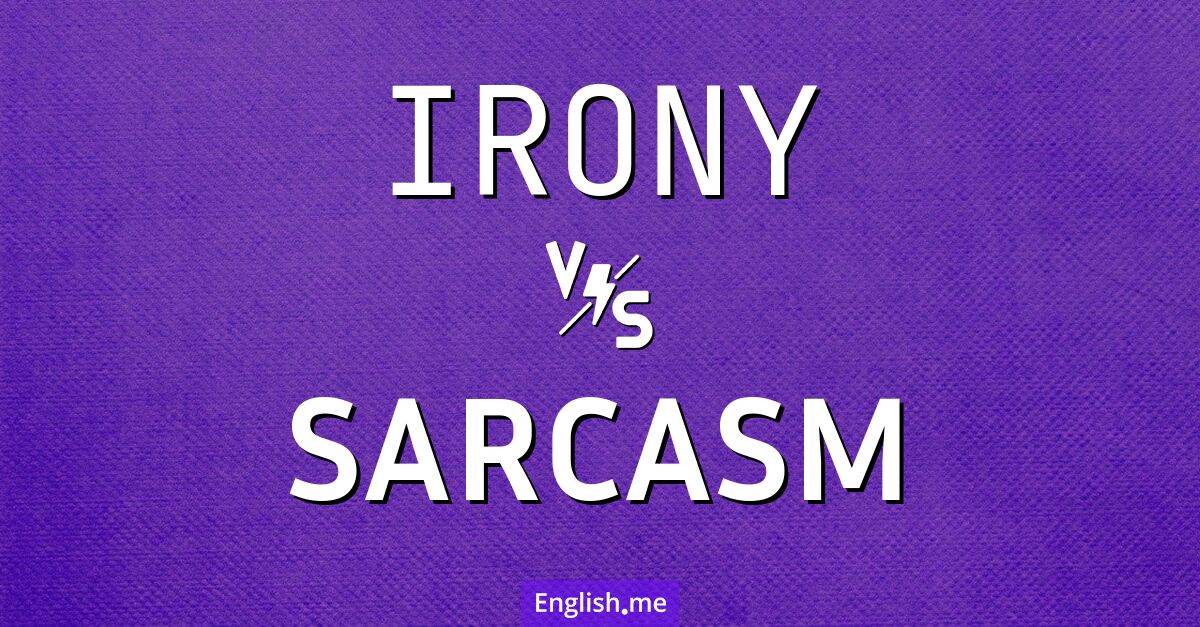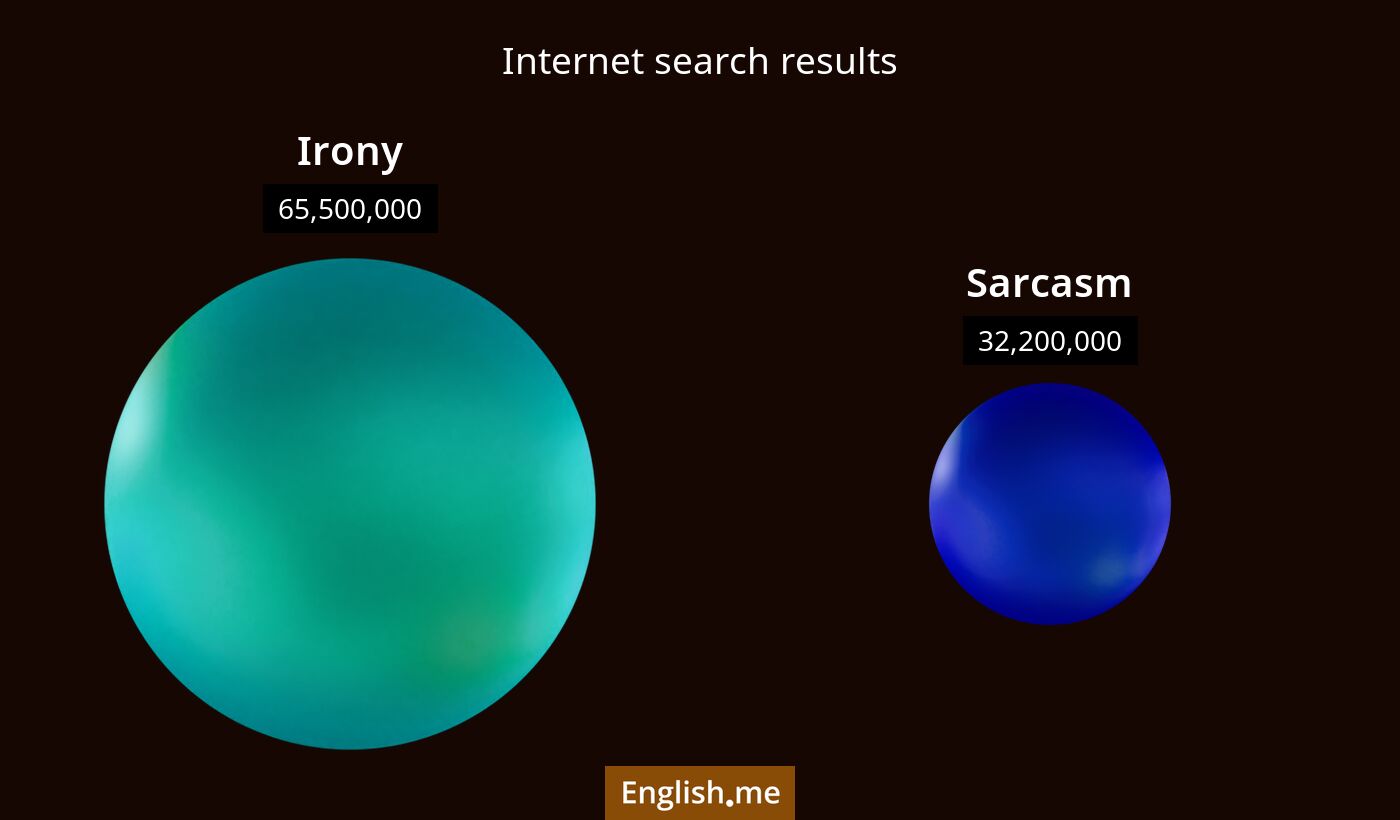"Irony" vs. "sarcasm": two sides of a witty coin
Reviewed and edited by  Anwar Kareem 13/10/2024, 19:07
Anwar Kareem 13/10/2024, 19:07
English.me team member

 What is similar?
What is similar?
Both irony and sarcasm involve an incongruity between what is said and what is meant. They are often used to express criticism or humor.
 What is different?
What is different?
Irony is a broader concept that refers to situations where there is a contrast between expectation and reality, while sarcasm specifically involves a sharp, often mocking remark intended to convey contempt or ridicule.
 Which one is more common?
Which one is more common?

 Examples of usage
Examples of usage
Irony- It is ironic that the fire station burned down.
- Saying "What a beautiful view" when looking at a wall of concrete is an example of verbal irony.
- Oh great, another homework assignment, just what I needed.
- "Nice weather we're having," she said, as she struggled to hold her umbrella against the pouring rain.

 English
English español
español française
française italiano
italiano deutsche
deutsche 日本語
日本語 polski
polski česky
česky svenska
svenska Türkçe
Türkçe Nederlands
Nederlands